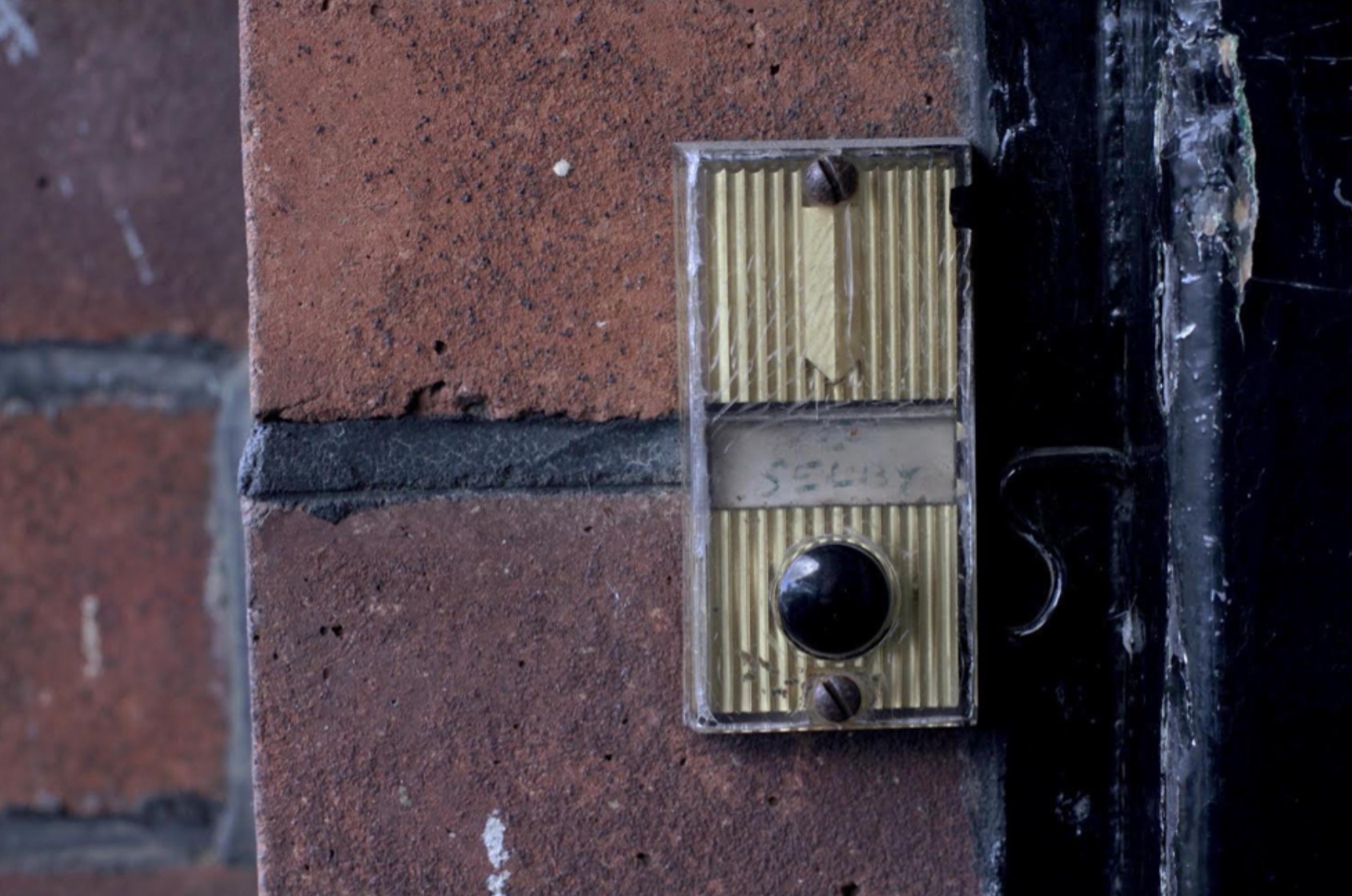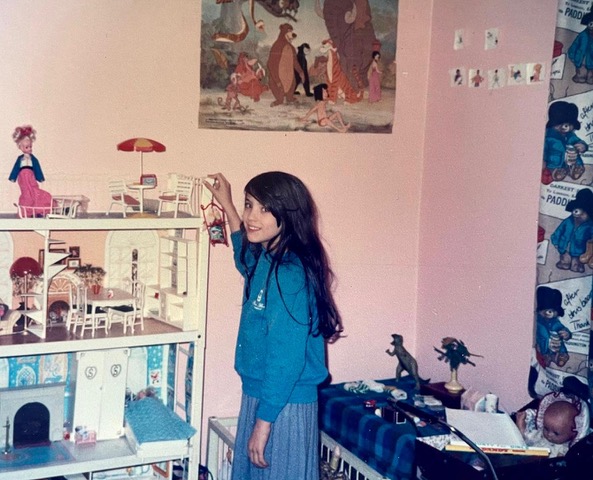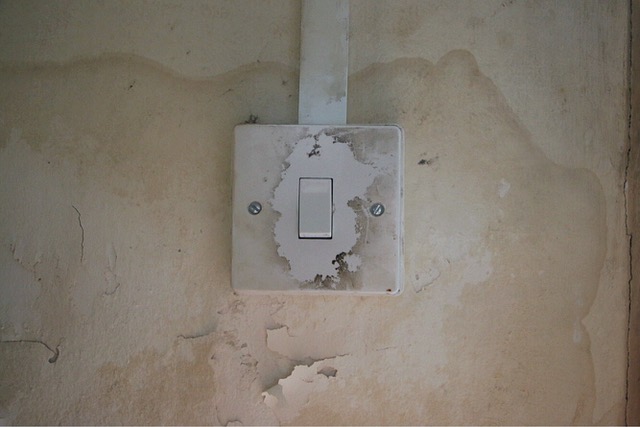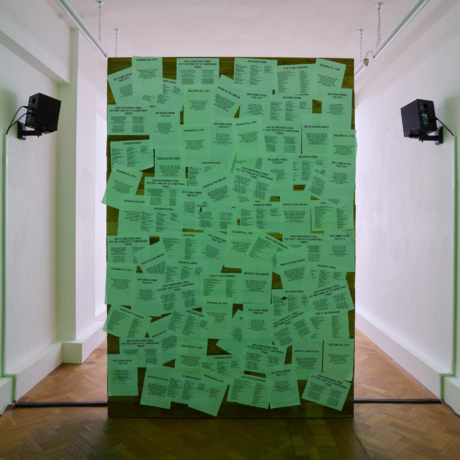
Recently I’ve been thinking about repetition; experiencing a teenage or early-twenties state of living throughout my thirties due to, obviously, lack of mobility in the current economy, the same activity repeating for years – different household items and parts of the psyche on a carousel of minor breakages. I’ve been wondering if there can still be moments of flux or change within this cycle. I hope so, and I want to find out what they look and feel like.
Lately I’ve developed the habit of getting an Uber almost everywhere despite this getting me into more debt, a ludicrous form of self-harm which makes me laugh at myself. I hate money. Every time I earn it, I shed it. I insist on buying people who earn more than me, or who come from middle class families and have savings despite being momentarily in a low wage bracket, lots of drinks, dinner, tickets to things. And I laugh at the fact they let me do it. People think, at best, I’m too generous, and at worst I want to be liked, but really I just can’t fucking stand anything being in my bank account. Of course, I happily do this for people who are also cyclically broke, they always return the favour when they’re ‘on the up’. I laugh with them about the phenomena of mutual aid amongst the dwindling working class, or simply the dwindling, in this city, which I refuse to leave on a matter of principle. My anecdote for this column ends there, with a little flash of feeling mirrored in the reasons I want to speak to Lisa Selby, a rare person in the arts, someone who advocates for non-hierarchical making and subverting the current models of cultural production, whose work I find to be deeply generative and moving.
Lisa Selby has been working as an artist for over a decade. Her work explores themes of mental health, grief, incarceration and addiction, paying particular attention to grass-roots and self organised networks, currently through photography, unconventional use of social media, writing, collecting and documentary filmmaking. She started the instagram account Blue Bag Life in 2016, beginning with posting photographs of paraphenalia and memorobilia from her late mother’s flat. BBL grew into an investigative, nuanced and expansive platform, providing space for the stories of people who had experienced addiction and incarceration from many vantage points, whilst continuing to document Lisa’s intimate relationships, and feelings around the loss of her mother, both in life and in death. Reading and watching Lisa’s work felt like being on a rollercoaster; swooping highs, lows and revelatory moments, whilst the viewer bore witness to an unflinching portrait of the impact of state powers on the disenfranchised. This was a work I engaged with repeatedly for 8 years, on a weekly basis, changing the way I typically engaged with art or what I expected from it.
Blue Bag Life (2022) then became the title for the documentary film co-directed by Lisa Selby, Rebecca Lloyd-Evans and Alex Fry, Produced by Natasha Dack-Ojumu at Tigerlily Productions, and co-written by Josie Cole, which was nominated for the 2024 BAFTA for Outstanding Debut by a British Writer, Director, or Producer; ‘a deeply personal odyssey through love, artistry and self-hood’. Lisa is an artist who has experienced many gut-wrenching changes in her personal life – these are well documented throughout her work – so I wondered which anecdote she would choose. Generously, she chose a few.

Emily Pope (EP): Can you tell me about an incident in your life which changed the way you make your work?
Lisa Selby (LS): I started to recognize the longing that I was feeling for a family unit. I’ve never really been into the idea of weddings and ceremonies or anything to do with the law, but I did want -: the mother, father, partner, boyfriend, husband, children. This could’ve been on a council estate, or anywhere, but I wanted that thing that everyone else seemed to have. So, it wasn’t a specific event, but it was particularly break-ups or being apart from people, multiple times, which caused changes in the work. I was forced into making another kind of work by these incidents. At Goldsmiths College and at Nottingham Trent I was making work that looked like ‘art’ alot of the time. And then I had a breakdown. I think the breakdown made me see a lot of things differently, it was in the middle of studying at Goldsmiths and on the MFA, and it was due to a breakup. I started to not look at objects in the same way as, you know, just their form – it wasn’t so much about memory or containing experiences either. It was more to do with the fragility of the home. And I got into, you know, ‘the domestic’ (laughs) and all of that kind of stuff, and I was still making all that to aesthetically look like ‘art’ because I, I think I wanted to be accepted, especially amongst my middle-class friends.
There were a lot of people in my life who were using drugs, specifically heroin, and those people were intermittently away from me. I sort of gave up on the art world. I didn’t feel comfortable in art galleries. I just stopped making and I was teaching, I’d lost my passion for it and it was quite difficult to teach and try and cover that up. And someone said to me, Lisa, what’s your Instagram doing? And it was all dog paws and rainbows, shoes and food. My mother had died and I’d taken some photos in her house of paraphernalia and all the bits and pieces – I was trying to figure her out. I wasn’t raised by her. I thought, I’m just going to post these on Instagram. I don’t know why I was doing it, but I archived everything, posted those photographs and I was giving them titles as if they were going to be photographs in a gallery, and the writing started to grow as I was thinking about her and the distance I always had from her. I also had a longing in another sense to do with the person that I was with at the time romantically, who was in prison. I think alot about absence, and how to create something that’s very present out of the absence.
‘I think alot about absence, and how to create something that’s very present out of absence.’
EP: The first time I came across your work was on Instagram, you were walking around the edges of prisons and you came up on my feed as recommended content, I’d never seen you before. You were walking around the walls of this prison and you were talking about why you were doing that. I thought, who is this person with this great accent, speaking like this? I thought it was brave. When did this way of working become an artwork for you and when did you feel like it was externally recognised as an artwork?
LS: I still don’t know what I think about it. I just wanted some company with my thoughts and with vocalizing the things that I was thinking. In each city I’d go to, I’d make sure I went to prisons to see what that walk around the prison was like. I did end up joining quite a few abolitionist groups because it was easier that way. I wanted to see the walls and I really wanted to get in, and I managed to get in and started painting murals in prisons with people in there. But there was something about not being allowed. The access that I had when I was visiting my then partner in prison, where I just wasn’t allowed beyond a certain point. And I suppose I just wanted to break that down. Why I wasn’t allowed.
EP: I think using social media is a democratic way of making art. It’s an obvious thing to say, but it’s something that everybody has; even if you are broke, you might have a smartphone or occasional internet access. So this method of working gives you the ability to tap into groups of people who might not be part of, say, a ‘hyperlocal’ gallery scene. I hadn’t really seen anything like Blue Bag Life before, using so many different forms of communication – photography, filmmaking, writing to tell many stories at once, there was something addictive and tabloid-like about reading the next story each day – like a cooperative news agency about addiction and loss written by the public. I think you said something to me years ago – you just thought that everybody’s ego needed to die, that there should be less ego with art-making. And I saw that the way Blue Bag Life produced a collective practice being reflective of the death of the ego, somehow, does that make sense?
LS: It does. But I had a struggle with that because I also didn’t want to be seen as an artist who only makes work on social media. Even recently with the film, everyone was calling me a filmmaker and I keep saying, I’m not a filmmaker, I am an artist, and maybe I’ll be making sculptures or paintings or curating next, in a way that is quite fluid. But I don’t really think too much about defining it. I get hyperfocused on something and can’t let go until I’m exhausted and then I have to have a big long break. It’s been about a year actually since I’ve touched social media, apart from a few workout videos here and there.
EP: You use really unconventional methods to create moving image, and you collect alot of footage. You use a webcam, laptop, and I think you’ve inspired a younger generation of artists who might not have the budget for equipment (like me) to make work with what is available to them. I wanted to ask you about your compiling and editing process, what does that feel like for you?
LS: I wasn’t part of the editing process for Blue Bag Life (2022), that was Alexandra Fry and Rebecca Lloyd Evans – I handed over the archive (and all my passwords for iCloud and DropBox! Imagine doing that, uncensored). I trusted the team. It’s not editing that really gets me going. It’s the collecting of material, I suppose. I’m a hoarder in many senses, digitally and with objects. Memories specifically of people who have died or whom I’m connected to in some way, but not close to. I always say that to my Dad; I’m not making the film about you because you’re my comfort and I don’t need to question you. Editing was generated through discussion – they had to go through all kinds of stuff! I had 12,000 videos and SD cards and icloud passwords, and all kinds of things that were uncensored. When it comes to social media, I do quite enjoy editing because that’s a format that I’m really comfortable with. I don’t like to edit on Premiere Pro, I like quick editing that almost looks a bit like a trailer or music video. I really got into GIFs and editing gifs over footage as well and just sinking into that creative moment of using things that already exist – GIFs as readymade. I haven’t filmed anything really for about a year on this break and I’m just wondering whether it will come again or whether it’s going to be another thing, fiction or fashion maybe! But yeah, in terms of actually editing – curation is important too, curating Instagram, curating other people’s words and images through conversational journals, having other people write, handing over the ownership, but still taking part in a way.

EP I think what you’re saying is if you’re going to let someone else edit, you need to be really investigative with the material and have a lot of it, so there’s a massively rich territory from which they can pull –
LS: My loft is absolutely crammed full of things and I have tried to pull out some of that stuff to exhibit, the SD cards and everything else. I often wonder when I watch those programs with people who have hoarding tendencies, when do they get stuff out? Is there a place where they have a look at the things that they’ve been hoarding? Or is it about piling up the collection? Because there are times where I spread everything out through an exhibition or amongst people or something, and I wonder what that transition is and why that’s important, because I get this fear that everything that I’ve been collecting is going to go with me once I die. And who else is going to place importance? But, I also get into it when I’m filming. So – maybe I’m a cinematographer or something deep down. I say to students a lot of the time, what part of this process did you feel your heart beating fast or did you feel like it was really getting you thinking? What part is it – when it was exhibited at the end, or is it when you were standing clapping to yourself in your studio space and you were thinking, what is this thing that I made?
EP: Could you talk to me a bit more about the process of working in a collective?
LS: I joined with the team to make the film, and now I’m curating some exhibitions and that’s with a team (Zelda Arts, New Practice, with the pilot at Transmission in Glasgow) and it’s like – I don’t want to have a, this is a Lisa Selby show. I am thinking about cross-class collaborations as well, where people have the contacts and the experience and I don’t but I might have something else. I wouldn’t necessarily consider myself working-class anymore, maybe in my bones! But yeah, how can you help each other? Rather than people stepping aside for other people’s voices, that’s not always something that I believe in. Sometimes it’s about how you can work together with your own expertise and theirs. And make that beneficial for each other. The ego does become removed in that as well, because for the filmmaking, for instance, if I wanted to tell my own story and edit and direct and everything else, you’re only seeing it from my point of view. Whereas with the film team it was through discussion and through these tangents and through their experiences, through their expertise, that something else forms. And I did try to make the film on my own, but it wasn’t right. You can’t see it from a distance. You’re too close and everything is self-focused, so it doesn’t really work for me. You know what? What if everyone gets paid the same, what if there’s counseling written into budgets and, you know, this is mandatory? But that’s kind of a dream world as well.
“I find it incomprehensible the amount of people that have watched the film. I can’t grasp how many minds I’m in – it’s not so much about getting the recognition, but somehow your brain becomes part of a discussion and a growth of resilience.”
EP: I think it’s good to keep putting that out there, because there may be somewhere in the popular consciousness it will get absorbed, a methodology to follow. Ok, so, who is your favorite artist or who do you take a lot of inspiration from? Anybody in your life that’s stuck out as a constant?
LS: God! I might need some time to think about this! Hang on second…
I really love Ozzy Osborne.
EP: That’s the right answer!
LS: I think it’s something to do with my dad having a big record collection. Bob Dylan is pretty amazing, still. But I pulled out Black Sabbath record and I put it on and it just hit the spot. I saw that spiral in the middle and I just was hypnotized by this deep sound, like the bass of it, getting into my body. I got into heavy, heavy metal and grunge and then discovered drum and bass which did the same kind of thing. Reflected the darkness that I needed at the time, and it sometimes amplified it, sometimes carried it and sometimes took it from me.
EP: I love Ozzy Osborne. I always think I look a bit like Ozzy Osborne. I think my style inspirations might be exclusively Ozzy Osborne and John Cooper Clarke.
LS: Haha. Yeah. Ozzy stays with me. I’d say I’m inspired by most people . They aren’t necessarily my family, but the family that you choose to have around you. Of course, I love my dad. The most. But it’s the family that you create around you when you haven’t got the same kind of family as everyone else, people who have not fit in in places. A lot of queer people. One of my queer friends said to me, I’m queerer than the queers. And I don’t really know what she means by that, but other people seem to agree.
EP: Obviously, I’m gay, and I think that queer people have solidarity with people who have been displaced in some way. Even if queer people have a ‘nice’ family, there’s always some level of family disconnect because of the nature of heteronormative living, and then a larger and more stark disconnect from the whole of dominant society. I can imagine that you get on well with us because of the shared experience of family disconnect and societal disconnect.
LS: Yeah, it’s exactly that. Back when I was a child, it was quite a rare thing for a man to be bringing up a daughter on his own. We used to go to Gingerbread Club and he used to just have these women who used to be after him because he was the only man there with a child. I just thought, how come everyone else has this mum figure when I don’t? And I think it’s a familiar longing that I’m learning to live with -: you don’t always get what you want.
“You know what? What if everyone gets paid the same, what if there’s counseling written into budgets and, you know, this is mandatory? But that’s kind of a dream world as well.”
EP: Lastly, I wanted to ask about the experience of releasing the documentary in a mainstream setting. How was that for you, what’s next for you now?
LS: I find it incomprehensible the amount of people that have watched the film. I can’t grasp how many minds I’m in – it’s not so much about getting the recognition, but somehow your brain becomes part of a discussion and a growth of resilience. When you’re making work because you feel longing or alone, and then you can actually see the people that are giving you attention. Everything has been so surreal, the film, seeing it in a cinema, you are opening up your most complicated traumas and relationships and your face is big, looking back at you – when normally, when you look in the mirror or cameras, it’s not that big.
EP: Is that liberating or disassociating?
LS: I think the liberating part is the disassociation. The liberating part is feeling the help of everyone around you, and I feel like I’ve helped a lot of people in my life. Not only did I get help and therapy through the film, but I had friends, who helped me in all sorts of ways through the process and people I didn’t know, even people from instagram who I’ve talked to over the years about their situations. I watched someone talking on Instagram today and they said something along the lines of if, haha, we’re getting a bit hippie here, but if you were part of the universe and someone said to you, you’re going to have a very short time on earth, do you want to go? You’re going to experience heartbreak, loss, absolute joy, great sex, very bad sex, connection, disconnection, you’d be like: yes, I want to go and do that. But we’re always really down on ourselves if things aren’t working out. But actually it’s all part of our experience, isn’t it? So why not put it out there. When we were children, we had all these things around us, the toys, and we put them in our mouth and it’s all about us and our needs. And there has to be a certain point where it sort of turns outwards and becomes more about other people and politics and what’s going on in the world. Quite a few people are expecting to know more after the film having questions like, so did you manage to have a baby? The end of the film wasn’t the end of my life, but that’s the end of what I choose to give.
Next, I would really like to write a screenplay, but not based around my life. I’d really like to shadow a director that doesn’t work in documentary, continue working on Instagram at some point, and also curate other people’s artworks.
Written by Emily Pope

